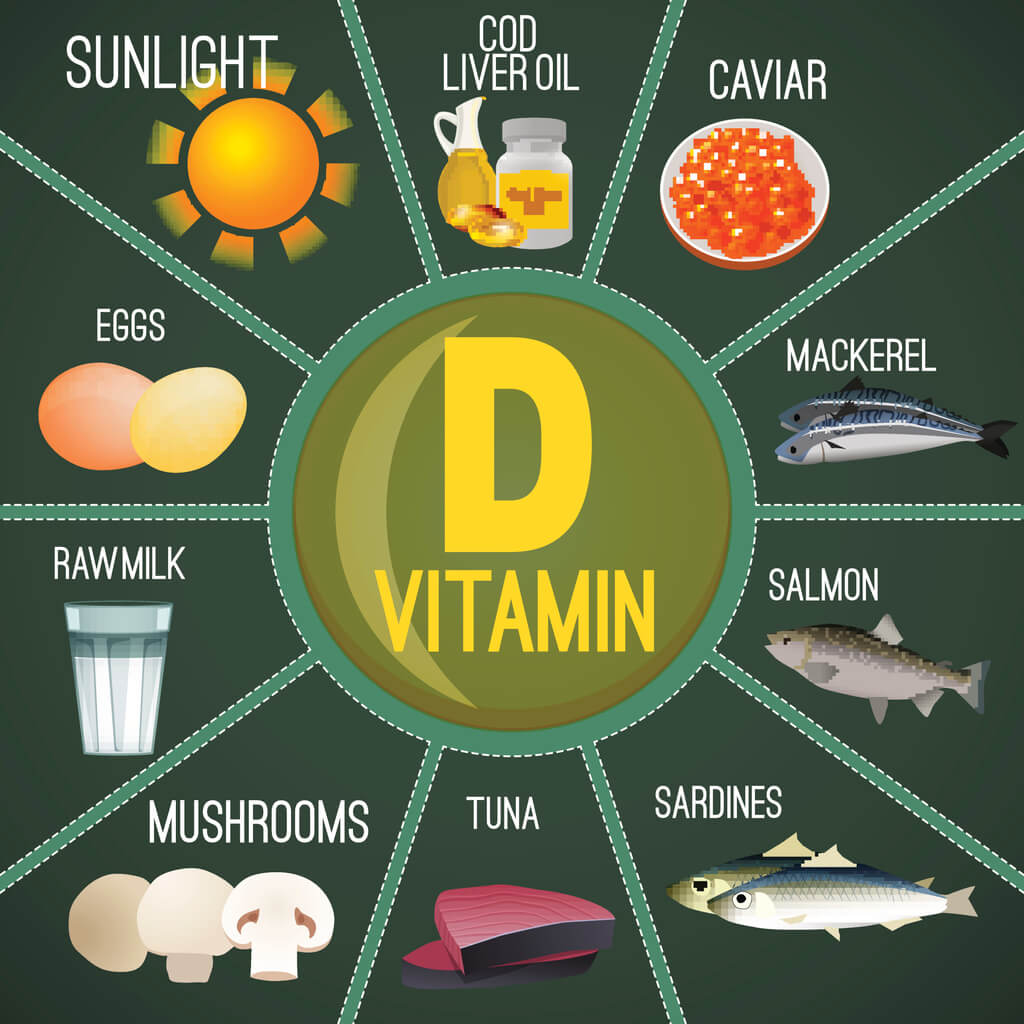Vitamin D
In general terms, vitamin D supports the joints as it helps the body absorb calcium. This is key to the health and development of the bones (and therefore the joints) and, as such, it is important the body is able to make the most of it.
More specifically, though, research has indicated that vitamin D may reduce inflammation.1 As such, taking a vitamin D supplement on a regular basis may benefit those suffering from joint problems where inflammation is at the root of the problem.
Moreover, vitamin D deficiency can result in an array of problems including low mood, digestive upset and aching joints. It is, therefore, very important we keep our levels topped up.
How can I get more vitamin D?
- Spend more time outdoors – much of our vitamin D intake comes from the sun
- Include more oily fish in your diet – mackerel and salmon have some of the highest vitamin D levels of any food
- Consume more milk – if you are vegan or intolerant to dairy, almond milk also has a good quantity of vitamin D
- Try a supplement – it is hard to get all of our vitamin D requirements from diet alone so you could consider a supplement to top levels up further.

Calcium
As I briefly mentioned at the start of this blog, calcium is crucial to the development of strong, healthy bones. If we fail to get enough long term, however, there is more chance that conditions relating to the bones and joints will develop. This includes osteoporosis which makes the bones more fragile and prone to breakages.2
This condition is particularly prevalent amongst menopausal women. The female hormone oestrogen declines at this time and bone density falls with it. This doesn’t just increase the chances of developing osteoporosis, however, as general pain and stiffness also become more problematic.
How can I get calcium naturally?
- Swap cheddar for hard cheese – hard cheese has a high calcium content. The likes of pecorino, manchego and parmesan are all tasty examples of hard cheese
- Cook more oily fish – salmon and sardines contain a reasonable amount of calcium
- Eat natural yogurt – make sure to stay clear of flavoured ones, however, that are loaded with sugars and artificial flavourings
- Try tofu – this also has a good quantity of calcium. If you eat meat, you could try switching the likes of chicken or ham for this at least once a week.
My Top Tip:Our Balance Mineral Drink contains a combination of vitamin D, calcium, potassium, magnesium and zinc. It helps to fight tiredness and fatigue, but also supports normal muscle and joint function.
|
Potassium
Potassium is important for maintaining fluid levels in the body. It also regulates levels of calcium and phosphorus in the body, two minerals that are crucial to bone health.
For those suffering from joint pain as a result of rheumatoid arthritis or hypokalaemia (this occurs when potassium levels in the blood get too low), upping your potassium has been seen to be beneficial. A 2008 study published in the Journal of Pain found, for example, that potassium supplements reduced joint pain in those suffering from these conditions.3
Now potassium deficiencies aren’t all that easy to diagnose so, if you are concerned, do take advice from your doctor before turning to any supplements.
How can I get more potassium in my diet?
- Cook with sweet potato – our spicy sweet potato soup will help you up your potassium intake, plus it tastes delicious!
- Make fruit salad – bananas, kiwi and oranges are all full of potassium
- Add tomatoes to salads – or cook tomato-filled dishes
- Use Molasses as a sweetener – this isn’t as sweet as syrup or honey but still makes a tasty addition to cakes and bakes.
Magnesium
Magnesium could easily be considered a wonder mineral, given the influence it has on the body. It can, for example, aid everything from mood, to sleep, to muscle pain. On top of this, magnesium is particularly beneficial for the joints.
If we are able to get enough magnesium, there is evidence to suggest that it may help to prevent osteoarthritis and a painful condition known as joint space narrowing.4 Here the cartilage fails to keep the bone separated and so they begin to rub together.
Research also shows that a magnesium deficiency can contribute to inflammation5 which will likely lead to pain and discomfort in the joints and in other areas of the body.
How do you increase your magnesium levels?
- Snack on pumpkin seeds – just 50g of pumpkin seeds contains 267mg of magnesium. Don’t fancy eating them plain? You can incorporate pumpkin seeds into an array of recipes and bakes – try these pumpkin spice breakfast bars as a starting point!
- Use more spinach – from salads to smoothies, spinach is a highly versatile ingredient, plus it is loaded with magnesium
- Swap white rice for brown rice – the latter has more magnesium, as well as other essential nutrients like manganese, zinc and iron
- Try a supplement – this is a fast, effective way to deliver magnesium to the body. I’d recommend a liquid supplement as this is more easily absorbed by the body than tablets.

References
1 https://www.sciencedaily.com/releases/2012/02/120223103920.htm
3 https://www.ncbi.nlm.nih.gov/pubmed/18468955









